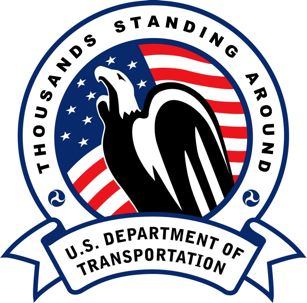Travel News
Should Private Screeners Take Over For TSA?
 In the wake of the outcry surrounding the Transportation Security Administration’s controversial new security screenings, many airports are reconsidering whether they should turn to private firms for their security needs.
In the wake of the outcry surrounding the Transportation Security Administration’s controversial new security screenings, many airports are reconsidering whether they should turn to private firms for their security needs.
Over the last nine years, 16 major airports, among them San Francisco and Kansas City International Airport, have switched to private firms. Now another major airport authority, the Metropolitan Washington Airports Authority, has reported that they are considering privatizing security at Dulles International and Reagan National.
For any airport that decides to privatize, however, the choice will not be as simple as replacing the TSA with a private company.
Airports must go through the TSA to be approved for private screeners, a process without any specific criteria for approval.
The TSA also pays for the cost of the private screening firm and maintains the final say on what company—if any—gets a contract. In addition, utilizing private security screeners does not exempt an airport from TSA procedures.
Our resident gadget guy Phil Baker had an interesting idea: Privacy Is Dead, So Let Google & Facebook Take Over For TSA
 Private security screeners are required by federal law to undergo the same training as TSA agents, and they must use the same techniques and operate the same equipment.
Private security screeners are required by federal law to undergo the same training as TSA agents, and they must use the same techniques and operate the same equipment.
That means private screeners must also use the controversial full-body scanners and enhanced pat-down techniques that caused public outcry when they were unveiled during the holiday season last year.
The outward difference between the employees of private firms and federal workers is limited to the use of different badges and insignias. But according to the airports that have privatized, the difference in customer service is pronounced.
According to proponents, private security firms are more customer service oriented and able to resolve security issues more quickly. Though the security process remains the same, advocates say that private screeners are more diplomatic in their approach, which makes the screening process less unpleasant for travelers.
Having private security screenings also allows airports to have more control over their personnel. While TSA agents as government employees are hard to dismiss, private contractors can be replaced quickly if their performance is poor.
Get Peter’s take: The TSA’s Security Theater–And What To Do About It
 Some lawmakers are pushing for the TSA to give up staffing private companies and return to being a regulatory agency. The incoming chairman of the House Transportation and Infrastructure Committee, Congressman John L. Mica (R-FL) recently petitioned 200 of the largest airports in the nation to make the switch to private companies.
Some lawmakers are pushing for the TSA to give up staffing private companies and return to being a regulatory agency. The incoming chairman of the House Transportation and Infrastructure Committee, Congressman John L. Mica (R-FL) recently petitioned 200 of the largest airports in the nation to make the switch to private companies.
According to Mica, the TSA would better serve passengers by focusing on “setting up the protocol, adapting to the changing threats and gathering intelligence.”
Opponents of the movement toward privatization, however, argue that airports are just reacting to public backlash and that moving away from a TSA staffed network would hinder the progress made since September 11.
A better solution, argue opponents, is to reform, not replace the TSA. As a fledgling organization in 2001, the agency consulted with Marriott International, the Walt Disney Co. and Intel to learn how to keep passengers happy and get them through checkpoints quickly.
Some analysts argue that the agency needs to remember its early commitments to customer service if it wants to compete against private companies.
By Adriana Padilla for Peter Greenberg.com.
Related Links: Washington Post, The Week
Related links on PeterGreenberg.com:
- The TSA’s Security Theater–And What To Do About It
- Privacy Is Dead, Let Google & Facebook Take Over For TSA
- Miss TSA 2011: Invasive TSA Scanners Inspire Sarcastic Pin-Up Calendar
- TSA Security Procedures Under Fire As National Opt-Out Day Approaches
- Pilot Screenings To End Amid TSA Privacy Clashes
- Holiday Season Airport Security Preview: Full Body Scan or Invasive Pat Down?
- TSA’s Virtual Stripsearches: X-Rated Pat Downs Fuel Privacy Backlash
- TSA Privacy Backlash Grows With Release Of Body Scan Images
- Travel Safety & Security Section












